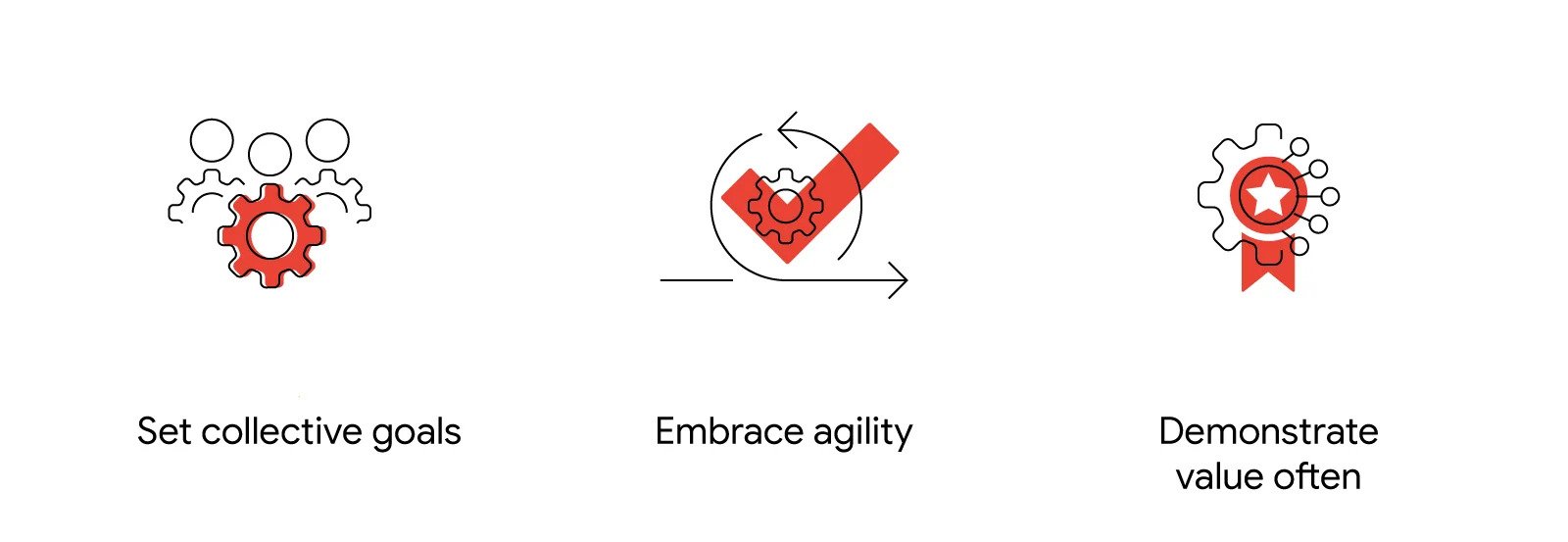Navigating Together: 3 ways agencies can guide clients through digital transition
Grant Keller, the global CEO of Acceleration, WPP’s Google technology and data consultancy, and Ekapat Chareonlarp, the global VP of media innovation and marketing at GroupM, offer valuable insights on digital transformation.
With digital transformation, the guiding principle they often share with clients is akin to training for a marathon: one doesn't start with the marathon; instead, one begins with shorter distances, gradually building endurance for the long haul. In a business context, this means laying the groundwork for a sustained, multi-step transformation process with the help of Acceleration, GroupM’s certified Google marketing specialist.
Their method draws from two decades of experience assisting brands in harnessing modern marketing technology to foster growth and transformation. Recent research, such as the Boston Consulting Group's Google-sponsored study, suggests that such an approach yields benefits, with businesses witnessing up to three-fold near-term revenue gains after implementing scalable digital solutions.
The rate of change is accelerating, and clients increasingly require their agencies' expertise and support. Keller and Chareonlarp outline three key marketing practices they foster in their clients to keep them ahead of the curve.
Formulate shared objectives
Historically, the CMO's role often involved representing the customer's interests to the C-suite. However, in a digitally dominated world, the responsibility cannot lie with a single executive. Although the CMO can coordinate various business functions, successful transformation requires the entire executive suite to align and drive change. As an integral part of the marketing team, agency partners are ideally suited to assist the CMO in bringing together corporate leaders and defining mutual objectives.
Volvo's collaboration with Acceleration to enhance campaign measurements and deepen its company-wide dependence on first-party data is a prime example. Through the utilisation of Volvo's past marketing campaigns, brand lift studies, and attribution models, Acceleration empowered the company to create a bespoke marketing mix model.
This model offers insights into the entire customer journey, covering the effectiveness of each digital interaction, from paid search and video advertisements to social media. Leveraging this information, Volvo was able to optimise its marketing expenditure more effectively. Presently, this data informs decisions across the entire company, spanning from marketing to finance, and even reaching the CEO and his executive team.Cultivate adaptability
The journey of digital transformation often entails remaining open to continuous change to keep pace with evolving consumer behaviour, technology, and competitors. For many, this can be daunting. Agencies, privy to the latest trends and technological solutions, are well-equipped to guide brands in experimenting, learning, and gradually adapting.
Acceleration's experience underscores that deploying a minimally viable solution is usually faster than developing numerous proposals. Although it won't be perfect, it provides a basis for improvement based on what works and what doesn't.
For instance, pharmaceutical company Perrigo sought a more agile, integrated marketing approach. In partnership with its global media agency, Wavemaker, Acceleration developed a new operational framework, complete with a roadmap for effective ad campaigns and 12 training modules to enhance team skills.
These measures helped ensure Perrigo could act swiftly and uniformly across various markets in response to insights. By broadening digital marketing expertise globally, Perrigo successfully internalised its digital campaigns within three months, positioning the team to test, learn, and refine their methods.Regularly showcase value
Agencies play a pivotal role in demonstrating the sustained value of transformation, especially in terms of measurement and attribution. Rather than waiting for a grand unveiling after a year, it's more effective to regularly present results to clients, aiding in securing continued investment. At Acceleration, this involves utilising the Google Marketing Platform and tools like Google Analytics 360, enabling real-time application of insights from clients' media strategies to boost performance.
Digital transformation is not a one-off project; it's a continuous process, involving long-term commitment, iterative learning, and adjustments. However, by aiding your clients in establishing the right objectives, organisational structure, and technological resources, you can ensure they're equipped for a fruitful journey.Explore how other agencies are facilitating brand growth and learn more about Google’s beneficial approach to digital transformation, the Route to Ready.

